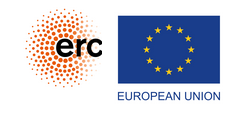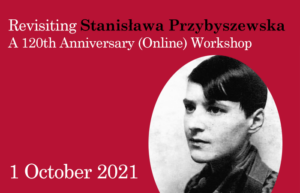8 October 2021, 18:00
SuperNova Cinema (N-406), Tallinn University
We are happy to invite you to the Open Philosophy Seminar dedicated to representations of the Revolution and its ideas!
The significance of the French Revolution goes far beyond its practical political consequences: ideas of radical change born in that tumultuous decade have gained shape and weight, survived the trials of application – or were disqualified by them – and continue to haunt the imagination of historians, philosophers, politicians, and writers. The (re)conceptualization of the French Revolution is an ongoing practice: new meanings are assigned to it, old ones are contested, and through this process the preoccupations of its many interpreters are revealed.
Stanisława Przybyszewska’s Sprawa Dantona (1929) is one of the most compelling dramatic works on the topic produced in the twentieth century, largely unknown until the seventies; Andrzej Wajda’s film Danton (1983), adapted from the aforementioned play, is considered to be a gripping testament of the political situation in Europe at that moment. Both authors took the revolutionary ideas and shaped them in accordance with their respective visions of history and of the present day.
A film screening of Danton will be followed by a seminar discussion of what we do with ideas of the Revolution and how they are put to work. French revolutionary actors themselves were already adapting the teachings of the Enlightenment; Przybyszewska and Wajda, in their turn, looked back at this process from a historical distance that was both an advantage and an impediment, and used the channels at hand, textual and visual, to convey what they saw there. What do we in 2021, watching a 1983 film about the events of 1794, itself an adaptation of the 1929 play, make of all that? How do we consume the ideas of the French Revolution today and what does that historical event itself mean to us?
The discussants:
Dr hab. Monika Świerkosz (Jagiellonian University)
Dr Diana Popa (Tallinn University)
Ksenia Shmydkaya (Tallinn University)
NB! Registration to the event is obligatory. Please, fill in the form: https://forms.gle/9x7TYrP1tDmLJB6L9



